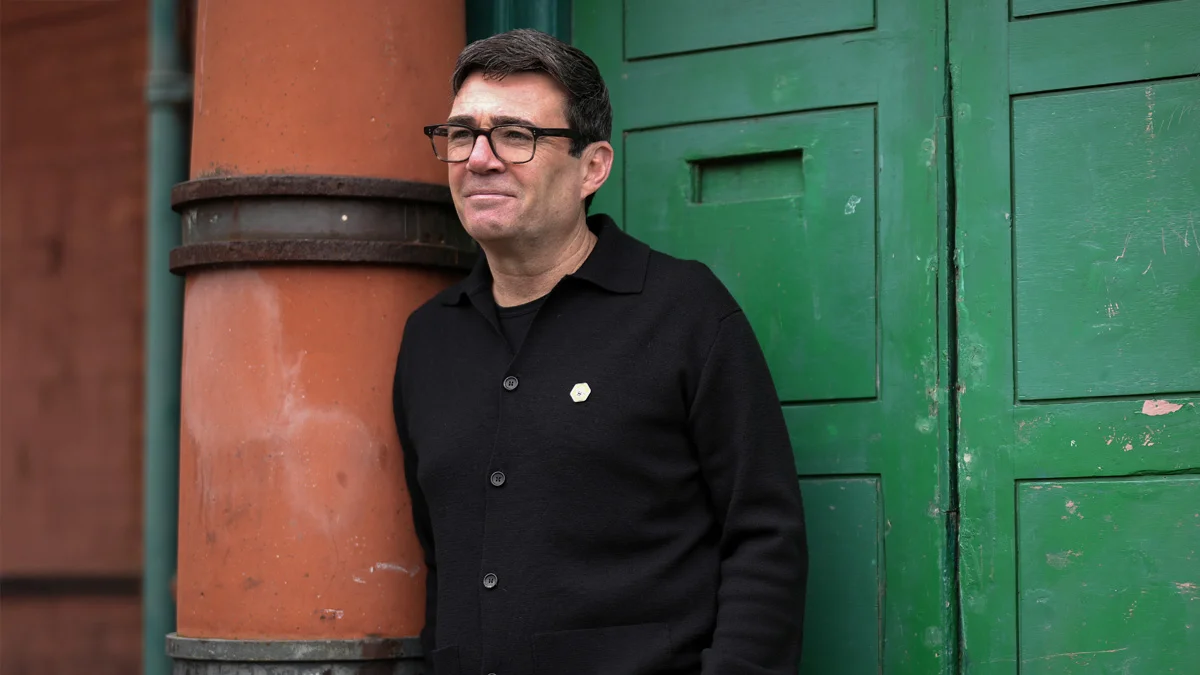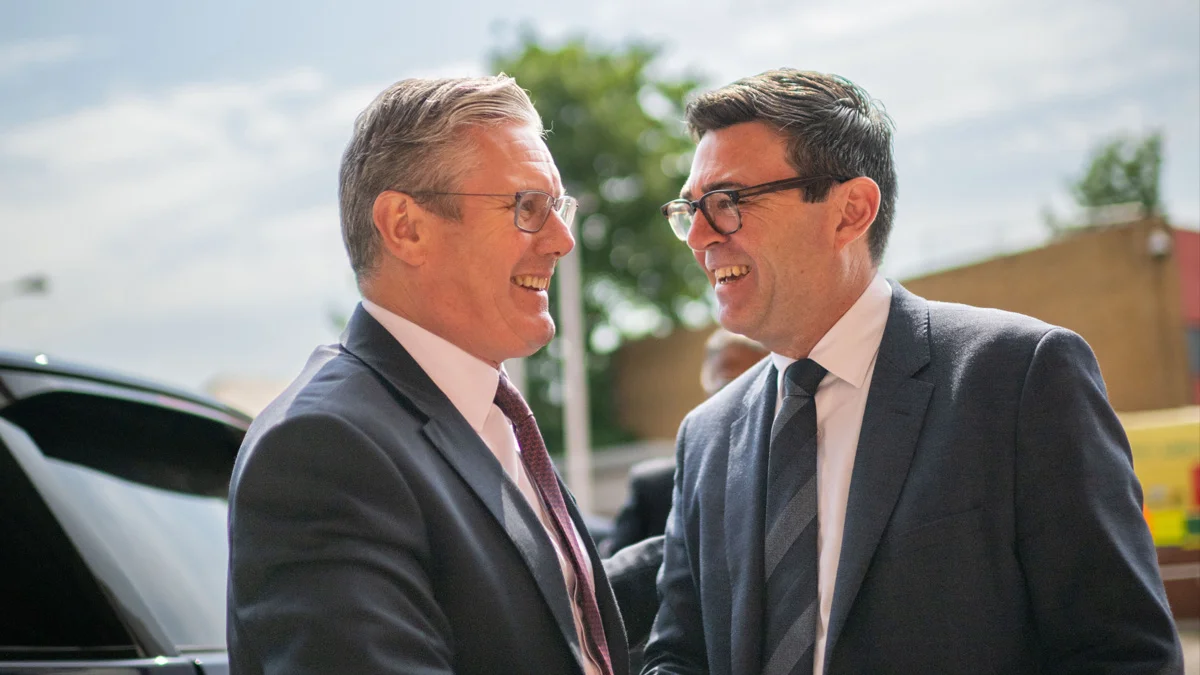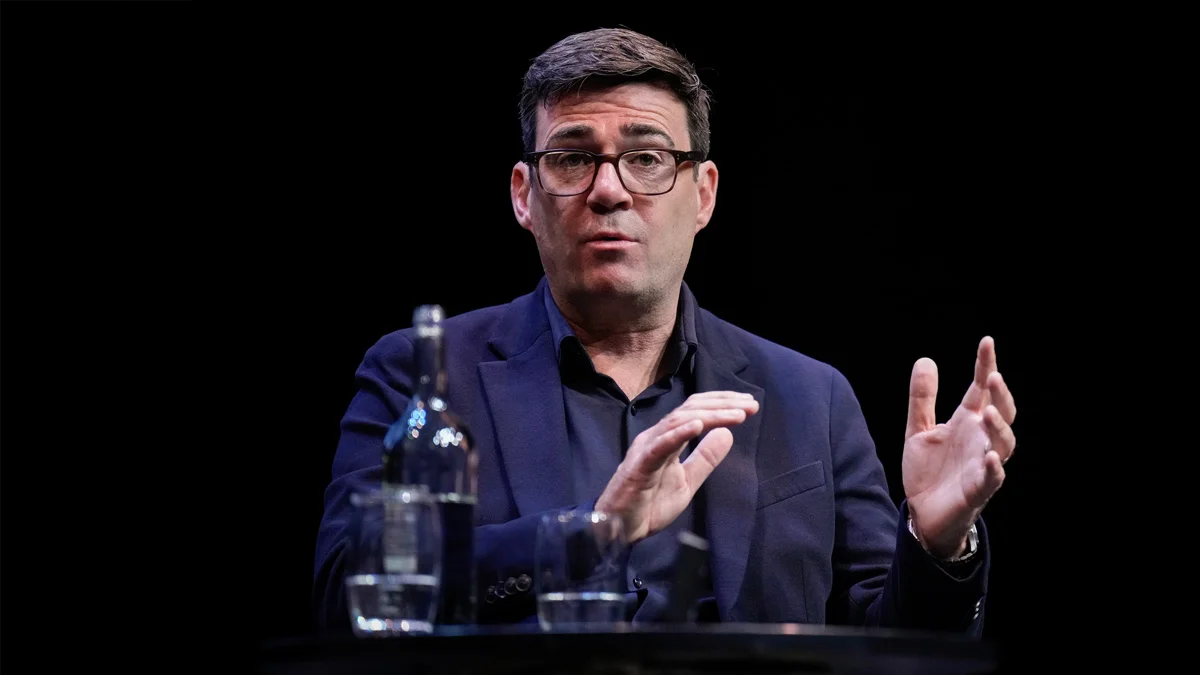
In many ways, Andy Burnham is an unlikely cheerleader for Sir Keir Starmer, the prime minister. Burnham has never been afraid of standing up to authority, famously wearing a navy-blue worker’s jacket in a speech when he told Boris Johnson’s Conservative government in 2020 that Greater Manchester wouldn’t accept any more crippling Covid restrictions.
The jacket went on display in a museum in Manchester while Burnham has since added to his reputation as the “king of the North” when he broke ranks in 2023 to accuse the Labour machine of briefing against him, sparking speculation of a possible rift with Starmer.
Fast forward 12 months and while Burnham won a third successive term as mayor of Greater Manchester, July’s landslide general election win for Labour put the party in power for the first time since 2010 and Starmer was able to stride into 10 Downing Street. There the comparisons end.
While Burnham’s popularity has rarely been higher, Starmer’s honeymoon period has been shattered by disputes over the winter fuel allowance, freebies and Budget tax rises. Our interview took place before the recent rows, but it’s why Burnham’s endorsement of Starmer is so telling.
“I’ve got to know Keir across the years,” he says from his Manchester office. “It sounds very grand me saying that now – and please don’t write it up in this way – but Keir was a member of my shadow home team in 2015 just after I’d lost the Labour leadership [contest]. We didn’t know each other at that point in time but I think it says something about Keir that, even though he’s the former Director of Public Prosecutions, he came in and played his part.
“I got to know somebody who is very clear-eyed on decision-making. He takes his time, considers things but makes very clear decisions [and] doesn’t fudge things. He’s someone who has been used to office. I always had a feeling that he would, more than anybody before him, look like a prime minister from day one. The minute that he entered Downing Street, he looked like the PM.”
Burnham also credits the influence of Starmer’s former chief of staff Sue Gray, before she quit recently saying she did not want to be a distraction amid a growing row around party donations and her pay.
“Sue Gray was the person who moved things to a much more serious level,” he says. “Her arrival signalled quite a change in the seriousness of preparing for government.” Within days of Labour’s general election landslide, Burnham and the other regional mayors headed to 10 Downing Street for talks with the new prime minister. The metro mayors are dominated by Labour although the Conservative Tees Valley Mayor, Ben Houchen, was also present at the meeting.

“To be called into Downing Street on day three of this new government was a very, very powerful signal that’s coming, hopefully, in this parliament,” he says. “It was such a message to the Whitehall system that the mayors are here and they are going to be key to the growth that the country needs. It was very empowering for all of us.”
It’s a far cry from Burnham’s sometimes strained relationship with the Tory administration. “I didn’t meet the last prime minister [Rishi Sunak] and I’m not saying that as a political point, it’s just a statement of fact,” he says. “I met him once as chancellor over Zoom in the pandemic. That’s not to say he didn’t do some things that were helpful for devolution because we signed a trailblazing deal with his government.”
Burnham also met Boris Johnson “more than once” but never managed to meet his successor Liz Truss. Burnham, 54, predicted Labour’s 2024 election would prove more significant for running the country than its runaway 1997 success because of devolution.
Burnham says: “Although 2024 is a similar result it was achieved without the massive surge in expectations and the feeling that everything was going to change overnight. The 1997 government had this huge weight of expectation but a very low ability to deliver because there was no regional infrastructure.”
Burnham maintains that, thanks to devolution, the ability to deliver in 2024 is higher, even if expectations are lower. “I actually feel that the 2024 moment is a more advantageous moment for Labour to be coming into government than 1997, even though most people would feel it’s the other way round,” he explained.
Starmer has confirmed the creation of a Council of the Nations and Regions (with Gray recently declining to take the role of special envoy for nations and regions) so that ministers can meet regularly with metro mayors, adding to the feeling of growing momentum behind devolution.
“In the first King’s Speech of this new government we had it confirmed that there will be an English devolution bill,” adds Burnham. “That is what Greater Manchester has been waiting decades to hear. If that bill comes through in the form that we would hope to see it, it will tilt the British state away from Whitehall and Westminster and towards the regions for the first time in our lives in a really significant way.
“We are being told the principle on which the bill will be based is devolution as the default setting for the British state, ie, if something can be devolved it should be. That is completely and utterly game-changing from our point of view and it was what Sir Howard [Bernstein, former chief executive of Manchester city council], Sir Richard [Leese, former leader of Manchester city council] and many others have, during many, many years, patiently built towards.
“That was such a moment to hear that confirmed: mayors in Downing Street within days; and an English Devolution Bill in the King’s Speech. This is as exciting as it gets for Greater Manchester given that we’ve blazed this trail. This devolution journey is tangible here. People can see the changes. They can see the growth in our economy. We have been growing faster than the UK economy for some years now.”
Burnham is the most powerful mayor outside of London but stressed that the North is speaking with one voice.
“I’m lucky because I’m in a position where people have built Manchester’s devolution over a long period before my time,” he says. “But we are very much working with everybody to say ‘Whatever we’re trying to do we would want everybody to do the same’ because that’s when devolution really builds out the power of it. When you’ve got a deal like we have in Liverpool, West Yorkshire, South Yorkshire, that’s where we can do more working with each other rather than having to go via Whitehall.
“When I negotiated that particular deal with Michael Gove, and he deserves great credit for taking devolution to a new level, I did so on an open-book basis. I said to the other mayors that we will not ask for anything without telling you what we’re asking for. We weren’t doing it in a closed, secretive way.
“The mayors are, in fact, more collaborative than we are competitive. Look at how I collaborated with [former West Midlands Mayor] Andy Street. He and I got on really well, with genuine respect and partnership. That’s how the mayors stand apart from the Westminster default mode of point scoring.”
However, is the Whitehall machine fully on board with the devolution train? “I think it varies,” admitted Burnham. “When you look at the different Whitehall departments you will find varying degrees of enthusiasm for devolution.”

Burnham has identified housing and education as his top two priorities in his third term. He has set up a new Greater Manchester Housing First Unit and has pledged to deliver at least 10,000 new council homes by 2028.
“You can’t have a successful city region until you see housing as a pre-eminent policy within a hierarchy,” he says. “You can’t have good health without good housing. Kids can’t have a good education without a safe, secure home. It’s the basis of everything. Kids in our 10 boroughs can see the skyscrapers (in Manchester city centre) from their bedroom windows but they do not have a path to these places. We are all about giving them a path.”
Burnham is equally passionate about education and creating a technical alternative to the university route through a qualification known as the Greater Manchester Baccalaureate, or MBacc.
“We love our universities here,” he says. “They are critical engines in our Greater Manchester economy, but if you’re only talking about that you’re doing a disservice to other young people in the area who want something different. I believe in comprehensive education and that means an education system that offers something for everybody and works for everybody.”
As well as looking forward, Burnham can also point to his achievements from his time in office. In 2023 Greater Manchester became the first place in England to retake control of its buses after nearly 40 years of deregulation with the launch of the Bee Network.
“We’re on course to complete the first phase by January 5, 2025, on budget and on time,” says Burnham. “The Bee Network, where it is in place, is better than what it replaced, significantly. We will turn the whole city yellow with regards to buses by January 5.”
Burnham remains committed to the mantra “place over party” and has also spoken out about the threat posed by social media. In the summer, he intervened after a video was widely shared on social media showing a police officer kicking and stamping on a man’s head at Manchester Airport. Manchester was also one of a number of places to witness violent protests after three girls were stabbed to death in Southport.
“The negativity of social media is outweighing the positivity at the moment,” he says. “Do they want social media to be a force for good or is the intent to allow it to continue to divide society? If it’s the latter, the regulatory approach is going to have to change significantly. I go on [the social media platform] X now and I can’t avoid what I’d call extreme racism.
“You can’t go on there now and not see it quite quickly. That is a massive change. In my early days in politics, if someone was vocalising those statements, criminal action would have followed quickly. Now it seems there’s so much of this stuff that nobody can do anything about it.”
Burnham’s approach to public life can best be summed up by a message he has stuck on his office wall next to an image of a homeless person. It’s a quote from a resident called Jo Barker-Marsh and reads: “Never stop fighting for change. This is your debt to us, this should be the price of your power, that you never give up.”
Burnham recalls: “That was said at a Debt Justice hustings in Harpurhey in the mayoral campaign. Jo Barker-Marsh is an amazing woman and she stood up, described her life and said that quote.”
It’s because of people such as her that Burnham has pledged to keep speaking out, even if it puts him at odds with the Labour government. “No doubt there will come moments when we will have to say ‘We don’t agree’ and we will have to make our case,” he explains.
“It’s just where there is a failure to understand the perspective from the North. “It’s often not a political thing; it’s more a Whitehall thing. You just call it out as clearly and forcibly as you can (and) I’ll always do that. I won’t change just because there’s been a change in government.”
Related and recommended
Richard Harpin, the founder of HomeServe and Growth Partner and owner of Business Leader, answers your burning business questions
Contestants from The Apprentice reveal the fundamental business lessons they learned from taking part in the TV show
From global talent pools to AI-powered documentation, a work-from-anywhere model is a new way of thinking about productivity, innovation and teamwork
The story of how cycling brought Business Leader member John Readman together with his co-founder and investors




